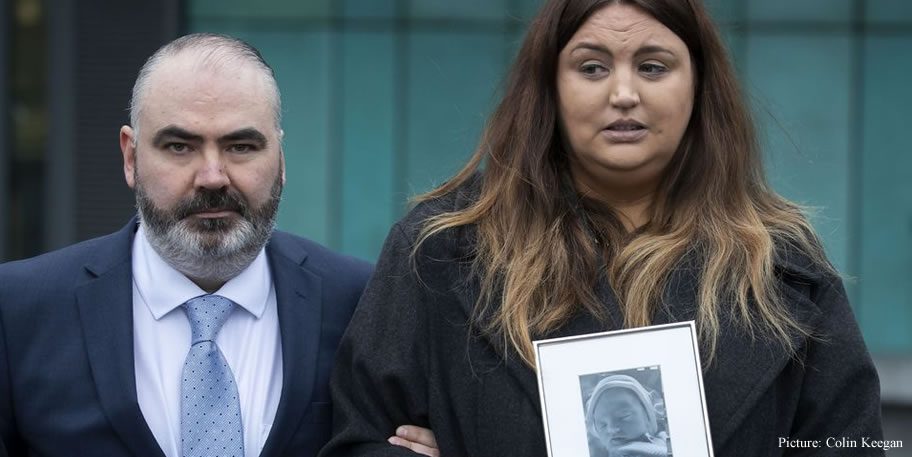The inquest into the stillbirth of baby Noah O’Shea-Rodgers at Wexford General Hospital in 2020 concluded with a verdict of medical misadventure. The jury found that the baby’s death could have been avoided if doctors had delivered him at an earlier stage due to complications with the mother’s preeclampsia, a condition associated with high blood pressure in pregnant women.
Expert witness Professor Fergal Malone criticised several aspects of the care provided to the baby’s mother, Claire O’Shea, including a delay in deciding to perform an emergency caesarean section, missed opportunities to diagnose preeclampsia, and a delay in confirming the diagnosis due to laboratory test limitations. The inquest revealed that Ms. O’Shea had demonstrated warning signs of severe preeclampsia, and the baby’s death resulted from a lack of oxygen caused by a severing of the placenta linked to the mother’s condition.
Prof Malone stated that there was no doubt the baby would have been born alive and healthy if delivered earlier, especially after warning signs had been observed. The delay in delivery, up to 24 hours, was deemed “probably unwise,” and the appropriate decision for an emergency caesarean section was acknowledged once the baby’s heartbeat started deteriorating.
The jury recommended that HSE guidelines on the diagnosis and treatment of preeclampsia be circulated to staff at Wexford General Hospital. The verdict of medical misadventure did not blame or exonerate anyone for the baby’s death. The parents, Claire O’Shea and Shane Rodgers, expressed their hurt and anger over the late diagnosis of preeclampsia and emphasised that Noah’s life might have been saved with proper care.
Following the Inquest, solicitors for Noah’s parents Mr. John Kelly from Callan Tansey Solicitors LLP said Noah’s death was an absolutely tragedy” – a child deprived of life and parents deprived of their healthy child”. “It is a tragedy that should not have happened and was preventable,” said Mr Kelly. He said preeclampsia was a well-recognised condition in pregnant women with well-established guidelines for the management of the condition.
However, he said Ms O’Shea’s condition was negligently mismanaged. Mr Kelly said the verdict justified their pursuit of the case since 2020 and more importantly it raised awareness among the public and medical staff so that someone with MS O’Shea’s condition would “speak up louder” in future and question their medical treatment, while medical staff might listen more attentively to patients.
“Perhaps a life could be saved and a child may have the chance of life. Tragically for Shane and Claire, Noah wasn’t given that chance ,” Mr Kelly concluded.

